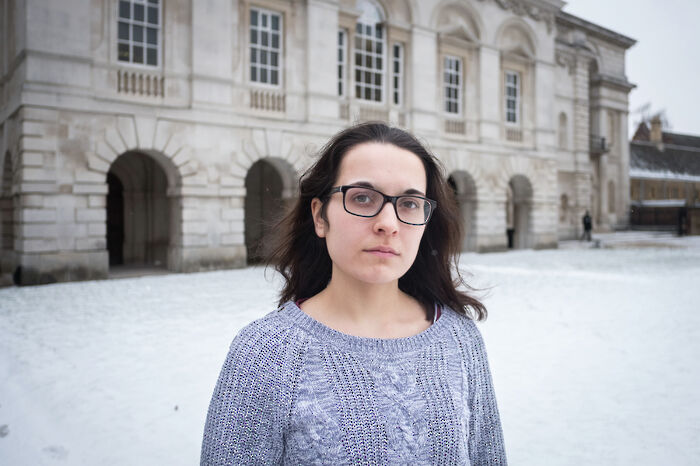Jennifer Hirst defeats Jeff Miley in University Council election
The Jesus College postdoctoral research associate joins 24 others on the Council

After eleven days of voting, Dr Jennifer Hirst has been elected to the University Council, the executive and principal policy-making body of the University, defeating Dr Thomas Jeffrey Miley by 609 votes to 325. Voting was open to all members of Regent House
Hirst, a postdoctoral research associate at Jesus College, specialising in clinical biochemistry, will replace Dr Pippa Rogerson, who stepped down from Council in January, and will serve with immediate effect until 31 December 2020.
In her application, Hirst emphasised her hopes to “represent the interests of senior researchers within the University, in particular relating to diversity and inclusion, career progression and promotion, and public engagement” while also promoting “interdisciplinary research” between the sciences.
Miley, a lecturer of Political Sociology and fellow of Darwin College, received support from a number of student organisations, most notably the Zero Carbon Society, who praised his “progressive manifesto” and desire for “fossil fuel divestment, for freedom of thought unshackled by the racist Prevent agenda, for decolonisation and democratisation.”
The elections came at a critical point in the Council’s engagement with the issue of divestment. The Council has also reaffirmed its endorsement of a 2016 report on its investments, which conflicted with media reports of its ties to the fossil fuels industry. The report included claims that the University has “negligible exposure to the fossil fuel industries”, which the University’s financial officer confirmed. On Thursday, student representative Alice Guillaume resigned from the University’s divestment working group in protest at what she considered to be a lack of progress on the issue.
The University Council currently comprises the Chancellor, Lord Sainsbury, the vice-chancellor, Stephen Toope, and twenty-three other members.
Membership is made up of four elected heads of Colleges, four elected Professors or Reader, eight other elected members of the Regent House, three student members (the Presidents of CUSU and the GU, and one elected student member), and four appointed (external) members. It is the principal executive and policy-making body of the University.
Varsity have approached Dr Hirst and Dr Miley for comment.
 News / Eight Cambridge researchers awarded €17m in ERC research grants27 December 2025
News / Eight Cambridge researchers awarded €17m in ERC research grants27 December 2025 News / Downing investigates ‘mysterious’ underground burial vault 29 December 2025
News / Downing investigates ‘mysterious’ underground burial vault 29 December 2025 Lifestyle / Ask Auntie Alice29 December 2025
Lifestyle / Ask Auntie Alice29 December 2025 Sport / Hard work, heartbreak and hope: international gymnast Maddie Marshall’s journey 29 December 2025
Sport / Hard work, heartbreak and hope: international gymnast Maddie Marshall’s journey 29 December 2025 Interviews / Meet Juan Michel, Cambridge’s multilingual musician29 December 2025
Interviews / Meet Juan Michel, Cambridge’s multilingual musician29 December 2025








